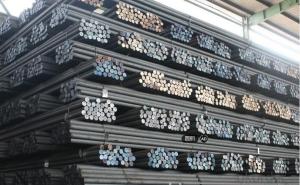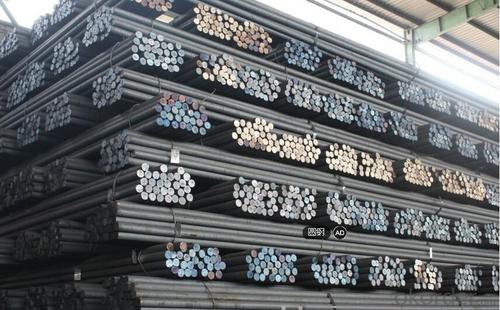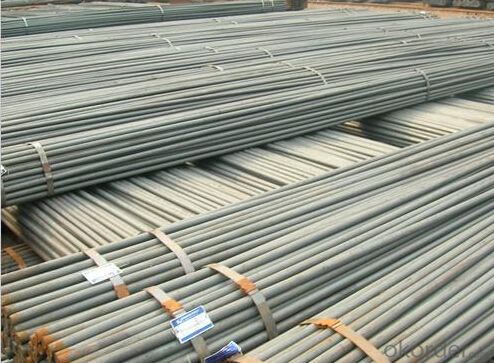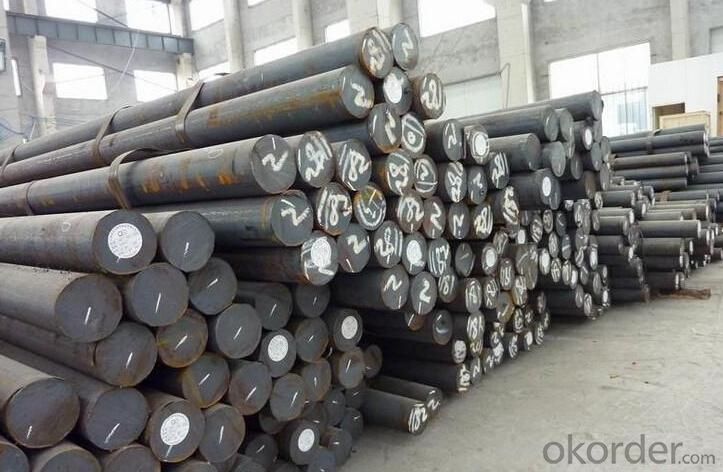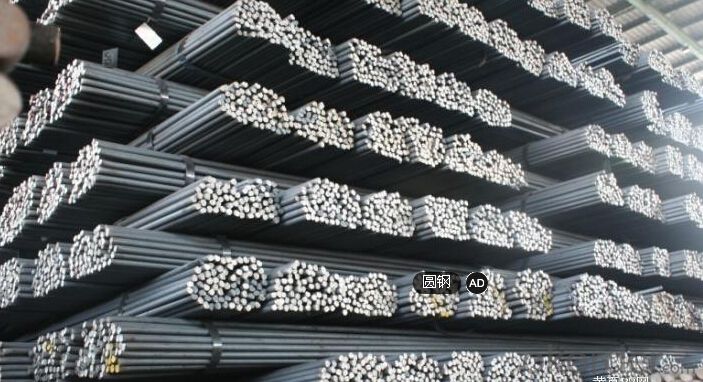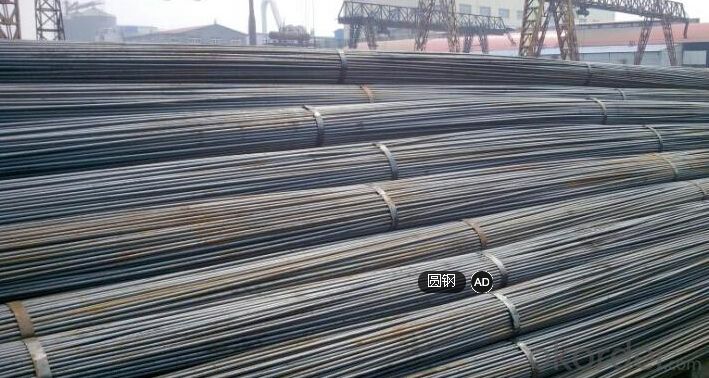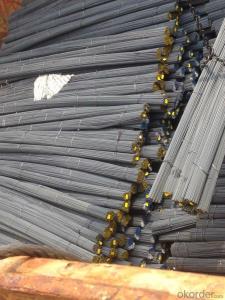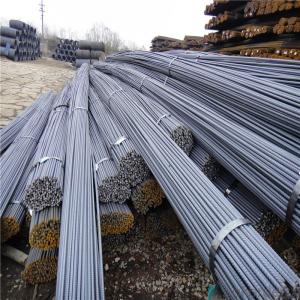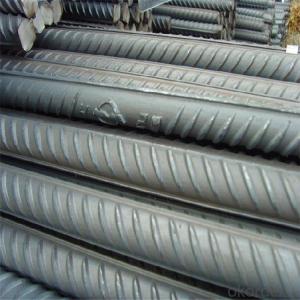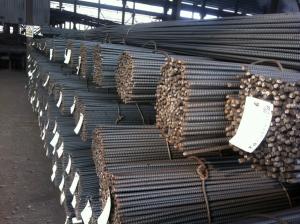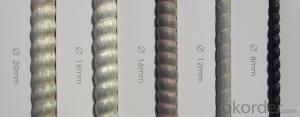Construction Material Prices Of High Tensile Deformed Steel Bar Quality Choice
- Loading Port:
- Qingdao
- Payment Terms:
- TT OR LC
- Min Order Qty:
- 5 m.t.
- Supply Capability:
- 100000 m.t./month
OKorder Service Pledge
Quality Product, Order Online Tracking, Timely Delivery
OKorder Financial Service
Credit Rating, Credit Services, Credit Purchasing
You Might Also Like
Specification
Type:
Carbon Steel,Spring Steel,Bearing Steel,Gear Steel,Deformed Steel,Stainless Steel,Alloy Steel
Shape:
Steel Coil,Steel Sheet,Steel Wire Rod,Steel Flat Bar,Steel Square Bar,Steel Angle,Steel Round Bar,Steel Billets
Technique:
Hot Rolled,Cold Rolled,Cold Drawn,ERW,Forged,Saw,Extruded,EFW,Spring
Surface Treatment:
Galvanized,Coated,Copper Coated,Color Coated,Oiled,Dry,Chromed Passivation,Polished,Bright,Black,PVDF Coated
Certification:
ISO,SGS,BV,IBR,RoHS,CE,API,BSI,UL
Thickness:
16mm-25mm
Width:
16mm-25mm
Length:
12
Outer Diameter:
16mm-25mm
Net Weight:
100kg
Packaging:
seaworthy packaging
Construction Material Prices Of High Tensile Deformed Steel Bar Quality Choice
Detailed Information of Construction Material Prices Of High Tensile Deformed Steel Bar Quality Choice
| Name | Steel Round Bar |
| Shape | Round Bar/Square Bar/Flat Bar/Plate/Wire |
| Standard | GB/ASTM/SAE/AISI/DIN/JIS/EN/BS |
| Surface Treatment: | Black/Peeling/Polished/Machined |
| Delivery Condition: | Hot Rolled or Forged/Peeled or Black Surface |
| Test | SGS/UT 100% Elements Testing |
| Certificate: | ISO/Mill Certificate |
| Service: | 24 hours online service / |
| more than 20 years trading and manufacture | |
| Quality Assurance: | the third party inspection, such as SGS, BV, TUV…etc. is acceptable |
| Packaging Details: | Seaworthy Packaging or as per customer's packing instruction |
Product Overviews of Construction Material Prices Of High Tensile Deformed Steel Bar Quality Choice
| Product Name | Typical Grades | Diameter(mm) | Standard Adopted |
| Carbon Steel | 20 (1020/S20C/C22) | ||
| 40 (1040/S40C/C40) | Ø16-Ø300 | ||
| 45 (1045/S45C/C45) | |||
| Bearing Steel | GCr9 (51100/SUJ1) | ||
| GCr15 (52100/SUJ2/100Gr6) | Ø12-Ø250 | ||
| GCr9SiMn (A485-Gr.1/SUJ3) | GB/SAE/ | ||
| Cr-Mo Steel | 20Cr (5120/SCr420H/20Cr4) | JIS/DIN | |
| 40Cr (5140/SCr440/41Cr4) | Ø12-Ø250 | ||
| 42CrMo(4140/SCM440/42CrMo4) | |||
| Gear Steel | 20CrNiMo | ||
| 20CrMn(5115/SMnC420/20MnCr5) | Ø16-Ø600 | ||
| 20CrNiMo(8620/SNCM220/20CrMiMo2) |
Company Introduction of Construction Material Prices Of High Tensile Deformed Steel Bar Quality Choice
CNBM International Corporation is the most import and export platform of CNBM group(China National Building Material Group Corporation) ,which is a state-owned enterprise, ranked in 270th of Fortune Global 500 in 2015.
With its advantages, CNBM International are mainly concentrate on Cement, Glass, Iron and Steel, Ceramics industries and devotes herself for supplying high quality series of refractories as well as technical consultancies and logistics solution.
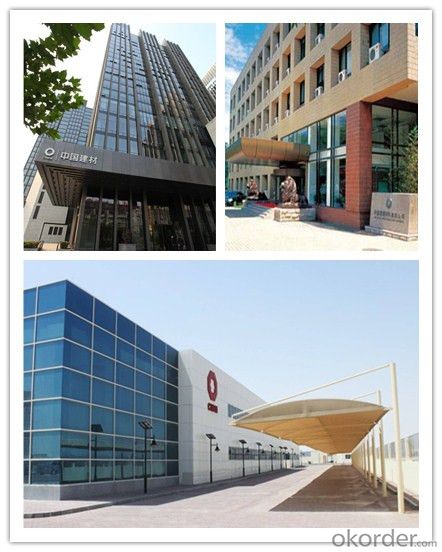
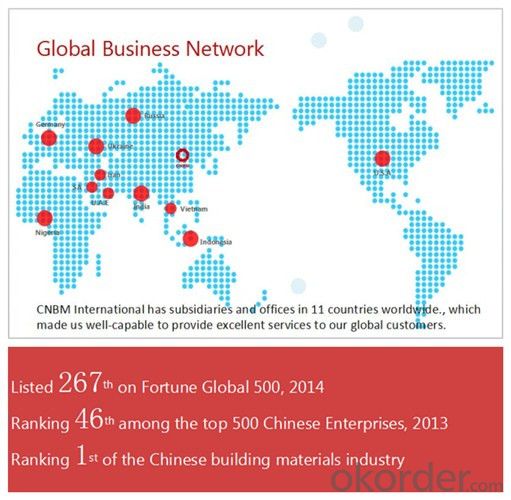
| After-sale service | l CNBM provides the services and support you need for every step of our cooperation. We’re the business partners you can trust; you can relax and get on with doing business. |
| l For any problem, please kindly contact us at any your convenient time, we’ll reply you in our first priority within 24 hours | |
| Advantages | l Industry experience over 20 years. |
| l Shipment of goods -More than 70 countries worldwide. | |
| l The most convenient transport and prompt delivery. | |
| l Competitive price with best service. | |
| l High technical production line with top quality products. | |
| l High reputation based on best quality products. | |
Packaging & Delivery of Construction Material Prices Of High Tensile Deformed Steel Bar Quality Choice
| Packaging Detail | Sea worthy packing /as per customer's packing instruction |
| Delivery Detail | 15 ~ 40 days after receiving the deposit |
Products Show
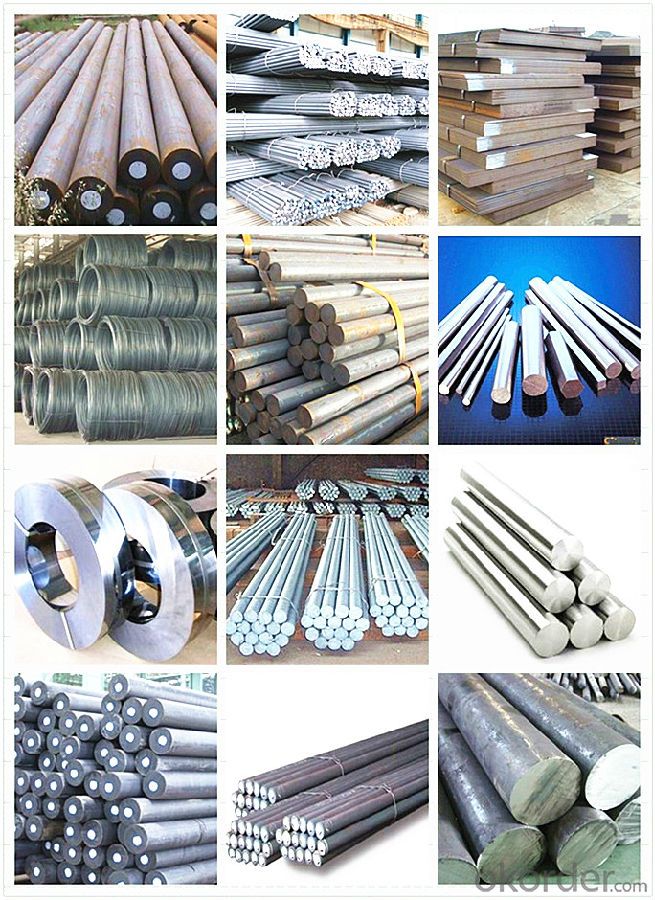
FAQ:
| Are you a trading company or manufacturer? | Manufacturer |
| What’s the MOQ? | 1000m2 |
| What’s your delivery time? | 15-20 days after downpayment received |
| Do you Accept OEM service? | Yes |
| what’s your delivery terms? | FOB/CFR/CIF |
| What's the Payment Terms? | 30% as deposit,70% before shipment by T/T |
| Western Union acceptable for small amount. | |
| L/C acceptable for large amount. | |
| Scrow ,Paybal,Alipay are also ok | |
| Why choose us? | Chose happens because of quality, then price, We can give you both. Additionally, we can also offer professional products inquiry, products knowledge train (for agents), smooth goods delivery, excellent customer solution proposals. |
| What's your available port of Shipment? | Main Port, China |
| What’s your featured services? | Our service formula: good quality+ good price+ good service=customer's trust |
| Where are your Market? | Covering more than 160 countries in the world |
- Q: How does special steel perform in cryogenic fatigue resistance?
- The exceptional performance of special steel lies in its ability to resist cryogenic fatigue. Cryogenic fatigue occurs when a material's structural integrity deteriorates under repeated loading and unloading at extremely low temperatures. Special steel, also known as high-performance or high-strength steel, surpasses conventional steels in its resistance to cryogenic fatigue. The enhanced cryogenic fatigue resistance of special steel can be attributed to its distinctive composition and microstructure. Special steels are typically alloyed with elements like nickel, chromium, and molybdenum, which enhance their mechanical properties, including strength and toughness, even at low temperatures. These alloying elements enable the steel to maintain its integrity and resist the initiation and propagation of cracks, which are common failure mechanisms in cryogenic environments. Moreover, the manufacturing process of special steel meticulously controls its microstructure to ensure optimal performance in cryogenic conditions. The fine-grained structure of special steel diminishes the susceptibility to fatigue cracks by promoting a more evenly distributed stress and strain throughout the material. This prevents the formation of localized stress concentrations, which can lead to crack initiation and subsequent failure. Apart from its composition and microstructure, special steel undergoes rigorous testing and quality control measures to guarantee its cryogenic fatigue resistance. Various industry standards and specifications, such as the ASTM E466 test method, exist to evaluate the performance of special steel in cryogenic conditions. These tests simulate the cyclic loading and unloading that the material may encounter in cryogenic environments and provide valuable data on its fatigue life and durability. In conclusion, special steel exhibits exceptional resistance to cryogenic fatigue due to its unique composition, controlled microstructure, and meticulous testing. Its ability to endure repeated loading and unloading at extremely low temperatures makes it the preferred choice for applications in industries like aerospace, energy, and cryogenic storage.
- Q: How does special steel perform in terms of corrosion resistance in acidic environments?
- Special steel, such as stainless steel, exhibits excellent corrosion resistance in acidic environments due to its high chromium content. The chromium forms a protective oxide layer on the surface of the steel, preventing the corrosive attack of acids. This makes special steel a reliable choice for applications where exposure to acidic environments is a concern.
- Q: How is special steel used in the construction manufacturing process?
- Special steel is used in the construction manufacturing process due to its unique properties and characteristics. It is commonly utilized in the production of structural components, such as beams, columns, and reinforcements, where high strength, durability, and resistance to corrosion are crucial. Special steel also finds application in the manufacturing of machinery, equipment, and tools used in construction, thanks to its ability to withstand heavy loads and extreme conditions. Additionally, it is used for specialized purposes like in the construction of bridges, skyscrapers, and other architectural marvels, where its exceptional strength and reliability are essential for ensuring the safety and longevity of the structures.
- Q: What are the different types of welding techniques used for special steel?
- Special steel can be welded using various techniques depending on its specific requirements and properties. Some commonly used techniques for welding special steel include: 1. Stick welding, also known as Shielded Metal Arc Welding (SMAW), involves using a consumable electrode coated in flux to create an electric arc between the electrode and the base metal. This technique is ideal for thicker sections of special steel due to its ability to generate high heat and deep penetration. 2. Gas Metal Arc Welding (GMAW), also known as MIG welding, utilizes a continuously fed wire electrode and a shielding gas to protect the weld from atmospheric contamination. Its versatility and ability to produce high-quality welds with good control make it widely used for special steel. 3. Gas Tungsten Arc Welding (GTAW), also known as TIG welding, employs a non-consumable tungsten electrode and a shielding gas to create an electric arc. This technique is often preferred for special steel alloys that require precise control over the welding process and where weld quality and appearance are crucial. 4. Flux-Cored Arc Welding (FCAW), similar to GMAW, employs a continuously fed tubular electrode filled with flux. This technique is commonly used for special steel applications that necessitate high deposition rates and deep penetration, such as heavy fabrication or structural welding. 5. Submerged Arc Welding (SAW) involves creating an arc between a continuously fed bare electrode and the workpiece, while a layer of granular flux covers the arc. This technique is typically used for heavy-duty applications and thick materials, providing excellent weld quality and high deposition rates. 6. Laser Beam Welding (LBW) utilizes a highly focused laser beam to melt and join special steel parts. It offers precise control, high welding speeds, and minimal distortion, making it suitable for specialized applications that require high precision and minimal heat-affected zones. It is crucial to consider factors such as material composition, thickness, joint configuration, and desired weld properties when selecting the appropriate welding technique for special steel. Expertise and knowledge are essential to determine the best technique for a specific application, ensuring optimal results in terms of weld quality, strength, and durability.
- Q: How does special steel perform in additive manufacturing applications?
- Special steel performs well in additive manufacturing applications due to its high strength, durability, and resistance to wear and corrosion. The unique properties of special steel, such as its ability to withstand high temperatures and extreme environments, make it an ideal material for 3D printing processes. Additionally, the flexibility and customization offered by additive manufacturing allows for the creation of complex geometries and intricate designs, further enhancing the performance of special steel in various applications.
- Q: How does special steel perform at high temperatures?
- Special steel performs exceptionally well at high temperatures due to its unique composition and properties. Unlike regular steel, special steel is specifically designed to withstand extreme heat conditions without losing its strength or structural integrity. It exhibits excellent thermal stability, resistance to oxidation, and maintains its hardness and toughness even at elevated temperatures. This makes special steel an ideal material for various applications that require reliable performance under high-temperature environments, such as in aerospace, power generation, and industrial processes.
- Q: What are the different methods for improving the corrosion resistance of stainless special steel?
- There are several methods for improving the corrosion resistance of stainless special steel. Some of the common methods include alloying the steel with elements such as chromium, nickel, and molybdenum, which enhance its resistance to corrosion. Another method is passivation, which involves treating the steel with an acid solution to remove any surface contaminants and create a protective oxide layer. Coating the steel with materials like paint, powder coating, or electroplating can also improve its corrosion resistance. Additionally, proper cleaning and maintenance practices, such as regular removal of dirt and debris, can help prevent corrosion and maintain the steel's resistance over time.
- Q: How does special steel contribute to the manufacturing of defense equipment?
- The unique properties and characteristics of special steel play a vital role in the production of defense equipment. To begin with, special steel is renowned for its exceptional strength and durability, making it perfect for constructing various defense equipment components. This high strength enables the creation of lightweight yet sturdy structures, allowing for the development of advanced weaponry and protective gear. Additionally, special steel possesses remarkable resistance to corrosion and wear, making it highly suitable for defense equipment operating in harsh environments. Its resistance to corrosion ensures that the equipment remains functional and dependable even in extreme conditions, including exposure to saltwater or acidic environments. Moreover, special steel offers outstanding heat resistance, a crucial feature for defense equipment like missile casings or jet engine components. Its ability to withstand high temperatures without compromising its integrity or mechanical properties enables the production of more efficient and powerful defense systems. Furthermore, special steel can be customized to meet specific requirements, facilitating the manufacturing of personalized defense equipment. It can be alloyed with various elements to enhance specific characteristics, such as increased hardness, improved magnetic properties, or better impact resistance. This adaptability allows for the production of defense equipment tailored to the precise needs of military applications, enhancing overall performance. In conclusion, special steel significantly contributes to the manufacturing of defense equipment through its exceptional strength, resistance to corrosion and wear, heat resistance, and customization options. These properties enable the creation of more advanced, reliable, and efficient defense systems that meet the demanding requirements of modern military operations.
- Q: How is special steel used in the construction industry?
- Special steel is used in the construction industry for a variety of purposes such as reinforcing concrete structures, constructing high-rise buildings, manufacturing heavy machinery, and producing durable and corrosion-resistant components. It provides strength, flexibility, and longevity to construction projects, ensuring their safety and structural integrity.
- Q: What are the main applications of special steel in the mining equipment?
- Special steel is widely used in mining equipment due to its high strength, durability, and resistance to corrosion. It is primarily used for components such as drill bits, cutting edges, crushers, conveyor systems, and buckets. The superior properties of special steel enable these mining equipment to withstand harsh operating conditions and enhance overall productivity and efficiency in the mining industry.
Send your message to us
Construction Material Prices Of High Tensile Deformed Steel Bar Quality Choice
- Loading Port:
- Qingdao
- Payment Terms:
- TT OR LC
- Min Order Qty:
- 5 m.t.
- Supply Capability:
- 100000 m.t./month
OKorder Service Pledge
Quality Product, Order Online Tracking, Timely Delivery
OKorder Financial Service
Credit Rating, Credit Services, Credit Purchasing
Similar products
Hot products
Hot Searches
Related keywords
